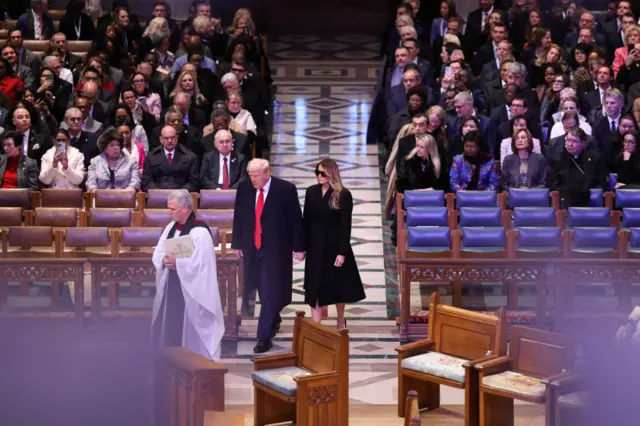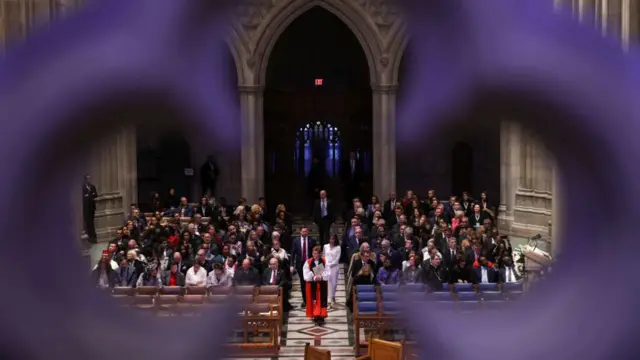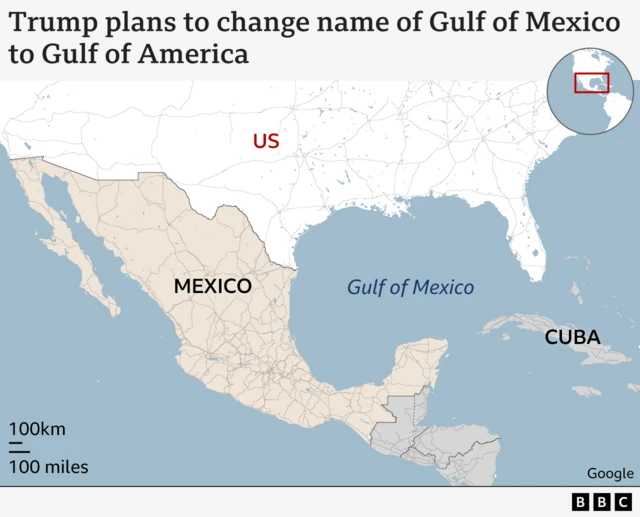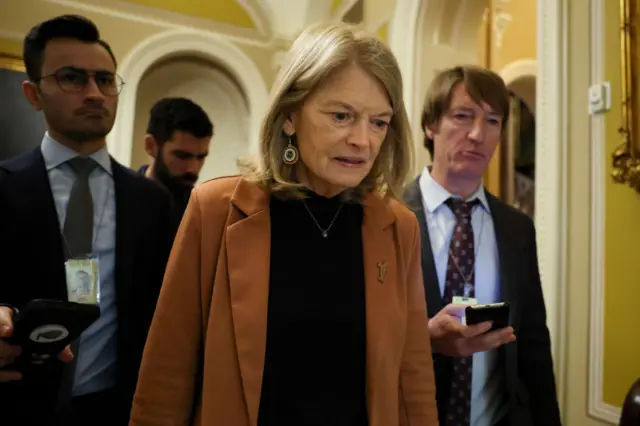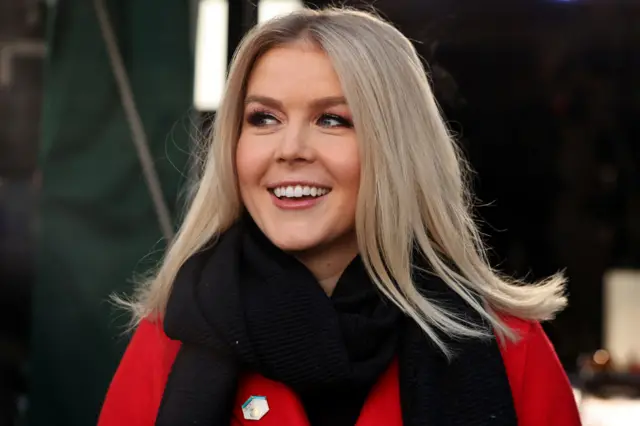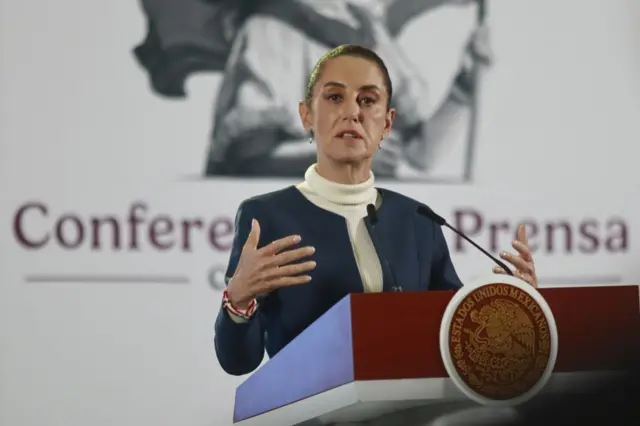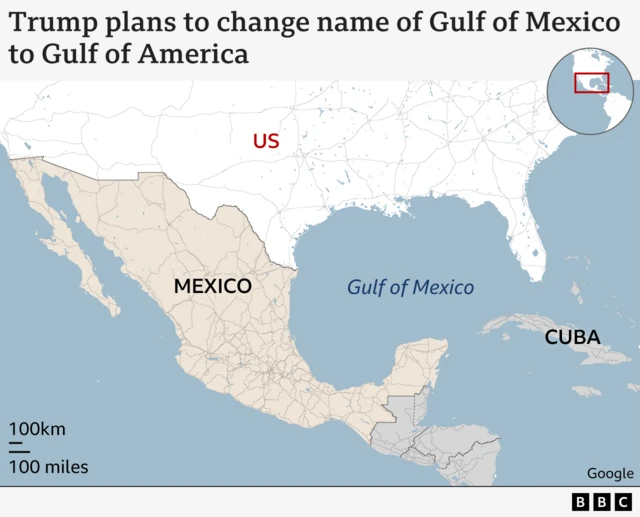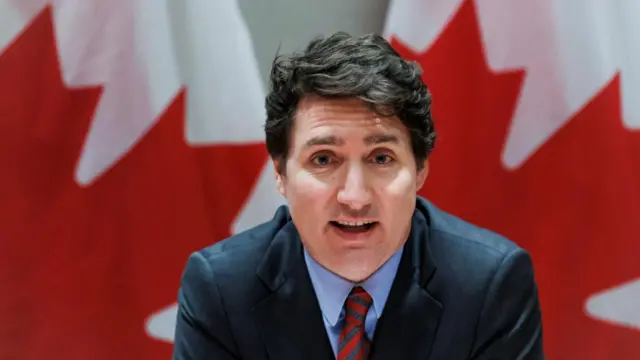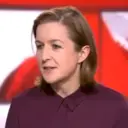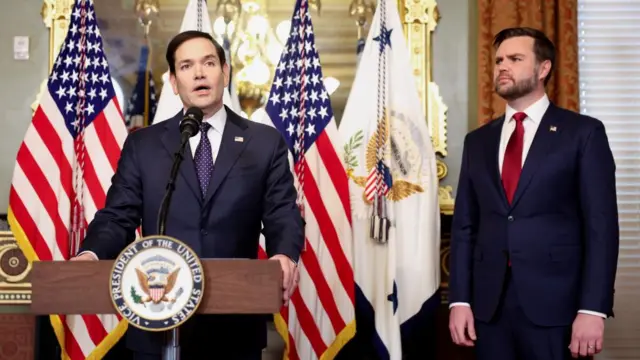In pictures: Trump family attends cathedral servicepublished at 16:55 GMT 21 January
President Donald Trump and members of his family are attending a multi-faith prayer service at Washington National Cathedral.
Among the other attendees are Trump's daughters, Ivanka and Tiffany Trump and their husbands, and Trump's son, Eric Trump.
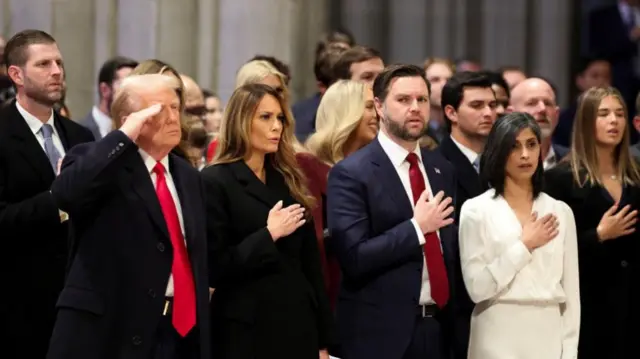 Image source, Reuters
Image source, ReutersPresident Trump salutes as the US national anthem is sung in the cathedral. He stands alongside First Lady Melania, Vice-President JD Vance and his wife, Usha.
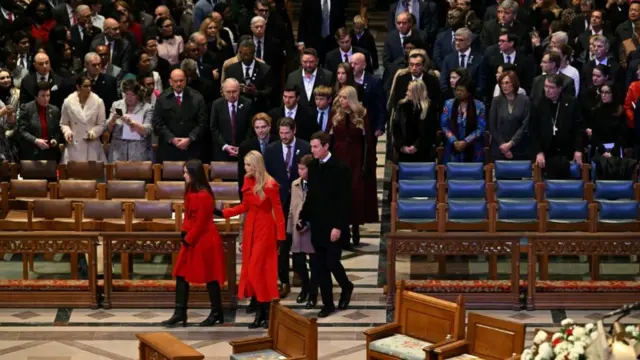 Image source, AFP
Image source, AFPTrump's daughter, Ivanka Trump, arrives at the cathedral with her husband, Jared Kushner, and their children. Following them are another of Trump's daughters, Tiffany Trump and her husband, Michael Boulos.
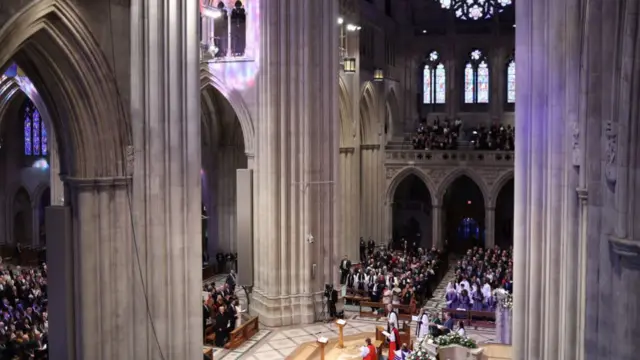 Image source, AFP
Image source, AFPRight Reverend Mariann Budde - who has been critical of Trump in the past - will give the service's sermon







